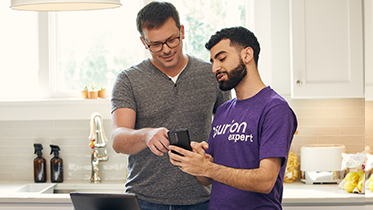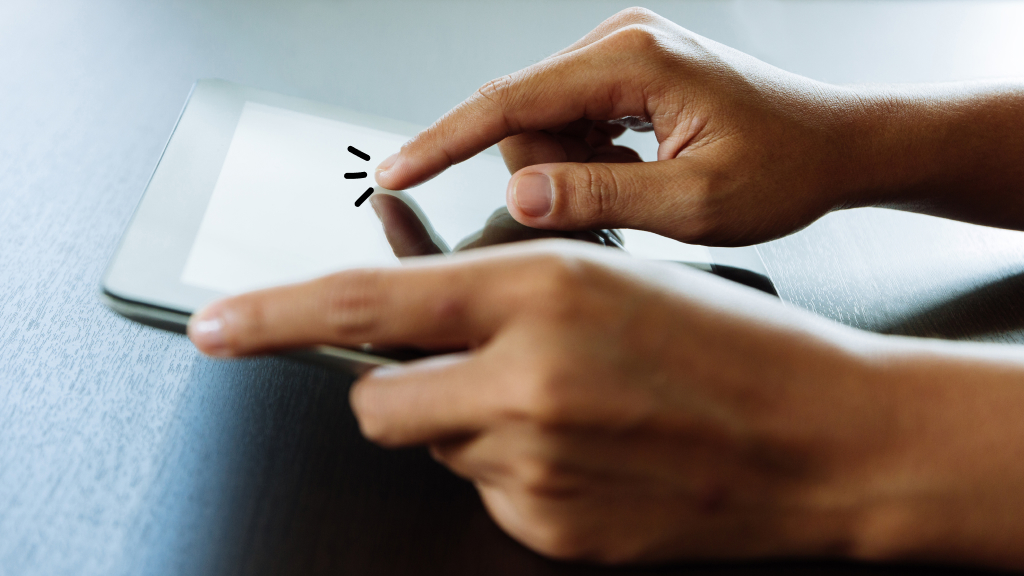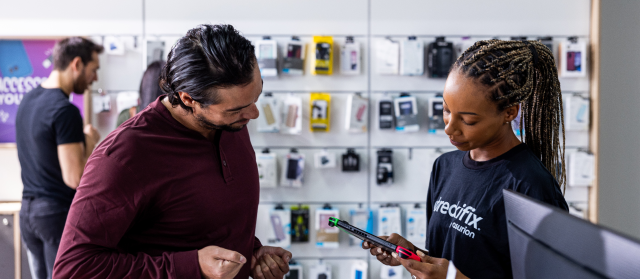Imagine settling in for a weekend gaming marathon only to find that your Xbox® isn't recognizing your external hard drive. It's where all your games and saves are stored, and suddenly, nothing's working! You're not alone in this tech hiccup—it's a common scenario that many gamers face. Luckily, resolving this issue can be simpler than you think.
You can trust uBreakiFix® by Asurion to power up your play. Our tech experts are here to ensure your devices can keep up with your gaming. Here's how to get your gaming setup back on track and ensure you don't miss out on any action.
Why isn’t my Xbox external hard drive working?
External hard drives can enhance your Xbox experience by providing extra storage for games and media. However, they can run into issues due to a variety of reasons—understanding these potential pitfalls is the first step toward a solution:
- Power supply problems: A lack of power could be the issue.
- Incompatible devices: Consider the compatibility between your hard drive and your console. If the two don’t match, your console won’t recognize the hard drive at all.
- Damaged files: Your console won’t be able to access the files on the drive if they are damaged or corrupted.
- Hardware failures: Either the external drive or the console’s reader could be failing, which could require a replacement hard drive or a console repair.
How to troubleshoot Xbox external hard drive issues
Troubleshooting your Xbox external hard drive can seem daunting, but with the right steps, you can get back to gaming in no time.
1. Restart your Xbox
Turn off your Xbox and unplug it for a few minutes before reconnecting. This can reset the system and potentially recognize the connected external drive.
2. Power cycle your hard drive
Unplug your external hard drive from the Xbox and wait for a few minutes, then reconnect the hard drive.
3. Check the compatibility
Ensure that your external hard drive meets Xbox requirements (USB 3.0 and a minimum of 256 GB).
4. Check the connections
Sometimes, reconnecting your external hard drive or trying a different port can solve the issue. Make sure your drive is firmly connected to your Xbox. Take a moment to verify that the hard drive receives power, indicated by a light or vibration.
If you're connecting the hard drive through a USB hub, try connecting it directly to the console.
5. Update Your Xbox
Updating your Xbox system to the latest firmware can improve external device compatibility. Here’s how you can get your Xbox up-to-date:
- Make sure your Xbox is connected to the internet.
- Press the Xbox button on your controller to open the guide, then select Profile & system.
- Open Settings > System > Updates to check for and update your console.
6. Check the hard drive on another device
Connect the external hard drive to a PC to see if it's recognized. If not, the drive itself may be at fault.
7. Try another hard drive
If you have another hard drive, why not test it out? A defective device might be why your external drive isn’t working.
8. Factory reset your console
Restoring your Xbox to its default factory settings can sometimes resolve deeper software issues. Remember, this should be a last resort, as it will delete all user data and downloads. You can use our guide for backing up and factory resetting your Xbox S/X or your Xbox One.
If you've tried these steps and still need a little help, we're right around the corner. Schedule a repair at the nearest uBreakiFix® by Asurion store and our certified experts can get your device back up and running as soon as the same day.
FAQ
Why won't my Xbox recognize my external hard drive?
Your Xbox might not recognize your external hard drive if it’s not formatted correctly (NTFS or exFAT are required for media, while games need Xbox-specific formatting), if the drive is under 128GB, or if it doesn’t meet USB 3.0 speed requirements. It’s also worth trying a different USB port and checking if the drive works with another device.
Can I use any external hard drive with my Xbox?
Not all external hard drives are compatible with Xbox. To store and play games, the drive must be USB 3.0 compatible and have at least 128GB of storage. Drives used for media storage (like videos and music) can be smaller or formatted differently but still need to meet the USB 3.0 speed standard.
How do I reformat my external hard drive for Xbox?
Plug the drive into your Xbox. If it's recognized but not set up, your Xbox will prompt you to format it. Go to Settings > System > Storage, select the external drive, and choose Format for games & apps. This will erase all data on the drive.
Can a faulty USB cable cause Xbox external hard drive issues?
Yes, a faulty or damaged USB cable can prevent your Xbox from detecting the external hard drive. Try swapping in a different cable and make sure it's securely connected. For best performance, always use the cable that came with your hard drive or a high-quality USB 3.0 cable.





